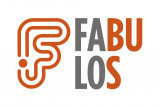Webinar on Properties of electric Vehicles - FABULOS Academy webinar #1

In 2019, the FABULOS project will organise six webinar sessions on robot bus topics introducing basic concepts, specific terminology and technologies commonly encountered in the field of automated mobility. The primary target groups are cities and other procuring authorities.
A new era of transportation
Increasingly many cities and public transport authorities are confronted with mobility innovations. Autonomous public transport is one of the “hot topics” that will radically change the urban mobility scene within the next decade. Several European cities have already gained experience with automated shuttle buses and many other cities have an interest in doing so. However, automated shuttles are not yet finished products and not ready for cost effective operation. Therefore, pilots in cities are critical to enable the development of the autonomous vehicles and their related systems.
However, employees at municipalities or other procuring entities often do not have in-depth knowledge regarding these novel technologies. Knowing all details is not always necessary, but when taking part in a pilot or procurement for (shared) autonomous mobility, it is essential to be aware of the fundamentals on, for example, sensors, positioning, cyber threats and charging. To bridge the knowledge gap, the FABULOS project launches the FABULOS Academy.
Six webinar topics
The FABULOS Consortium hosts six one-hour webinars in 2019. In case of popular demand on certain topic, a separate in-depth session can be organised. Below are the confirmed webinars (see https://fabulos.eu/fabulos-academy-2019/ for event details and registration form) as well as the foreseen topics:
1. Properties of electric vehicles (14 February 2019)
2. Regulatory aspects of autonomous mobility (16 April 2019)
3. Wireless communication technologies
4. Robot bus localisation (ie. positioning)
5. Sensors of robot buses and sensor fusion
6. Cyber threats and threat mitigation


